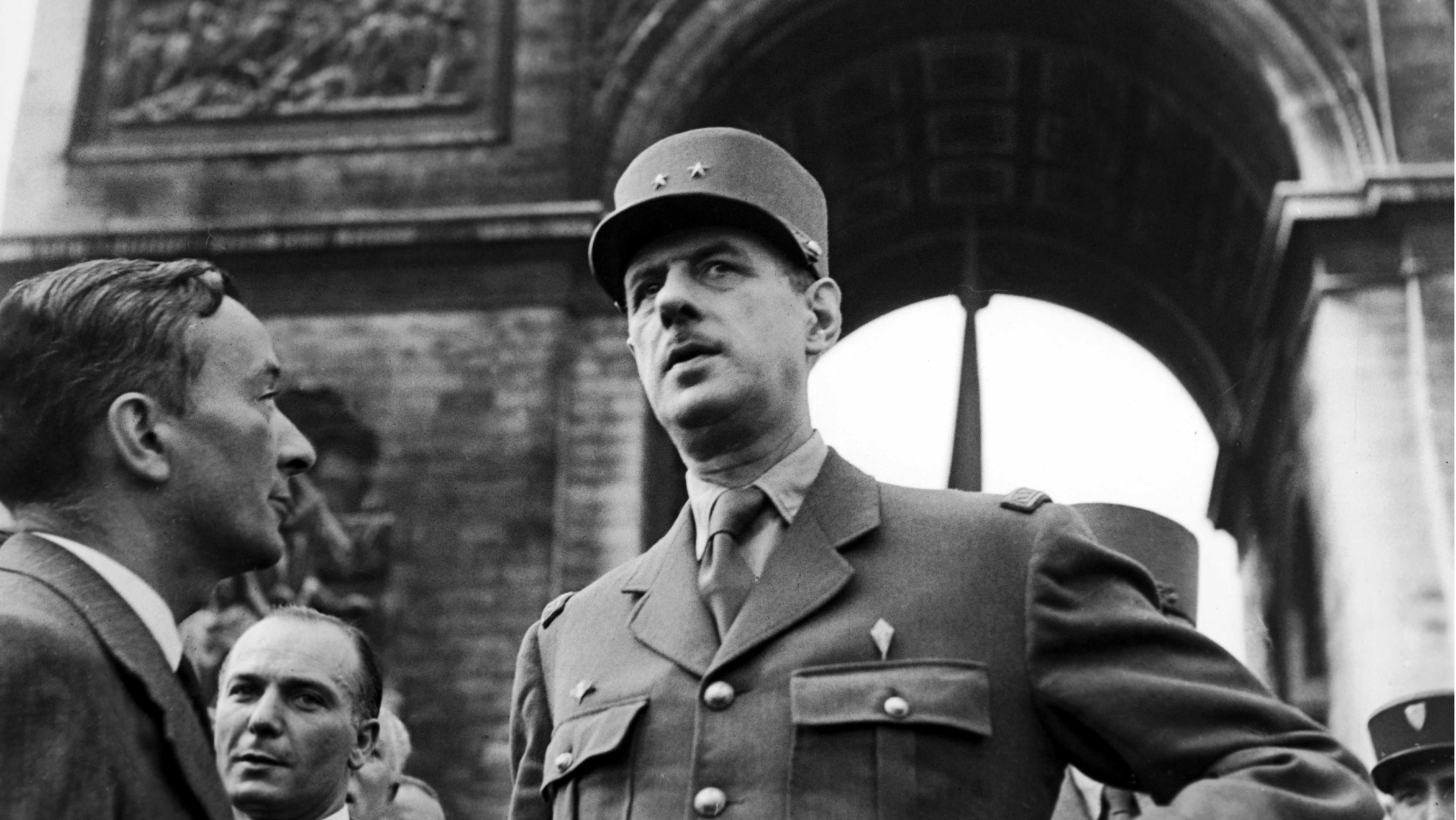Why is France awarding London the Legion d’honneur?
Emmanuel Macron sparks controversy with move to commemorate the city’s help during WWII

A free daily email with the biggest news stories of the day – and the best features from TheWeek.com
You are now subscribed
Your newsletter sign-up was successful
French President Emmanuel Macron is planning to award London his country’s highest honour, according to reports.
Macron is said to want to present London with the the Legion d’honneur to commemorate the city’s support during the Second World War, when the English capital hosted exiled Free French Forces leader Charles de Gaulle.
But while some commentators have welcomed the plan as a means to help smooth Anglo-French diplomacy in the wake of Brexit, others have blasted Macron for honouring France’s “hereditary enemies”, The Times reports.
The Week
Escape your echo chamber. Get the facts behind the news, plus analysis from multiple perspectives.

Sign up for The Week's Free Newsletters
From our morning news briefing to a weekly Good News Newsletter, get the best of The Week delivered directly to your inbox.
From our morning news briefing to a weekly Good News Newsletter, get the best of The Week delivered directly to your inbox.
What does Macron have planned?
The Legion d’honneur is the highest French decoration and was established in 1802 by Napoleon Bonaparte.
As the Daily Mail explains, “it has been presented on behalf of the head of state to reward the most deserving citizens in all fields of activity”, and has also been awarded to cities including Luxembourg, in 1957, and most recently to the Republic of the Congo’s capital Brazzaville, in 2006.
French newspaper Le Figaro reports that Macron is now planning to bestow the Legion d’honneur upon London as part of France’s “year of de Gaulle” celebration, which commemorates the 50th anniversary of the death of the former president and French Resistance leader.
A free daily email with the biggest news stories of the day – and the best features from TheWeek.com
Macron is believed to be planning to announce the award on 18 June, the 80th anniversary of de Gaulle’s famous Appeal speech from London calling on the French people to rise up against the German occupation of their country.
The Appeal is “regarded as the founding act of the Resistance” and was reproduced in English and broadcast on the BBC, says The Times.
And the response?
The reaction to Macron’s move has been mixed, with one French critic claiming on the Le Figaro website that “Napoleon Bonaparte must be turning in his grave”.
“He who created this medal and who was exiled to Saint Helena by the... English,” the disgruntled commentator added.
“The clearance sale of our Legion of Honour continues,” wrote another. “Mr Macron continues to destroy the French heritage.”
But Eric Bocquet, chair of the French senate’s Franco-British friendship committee, argues that the honour would be a “way of holding out a hand to the UK after Brexit”.
“It could be a way of showing that the UK is still part of Europe and that relations between Britain and France and between Britain and Europe are going to remain strong,” he added. “The English Channel is still just 21 miles wide and that isn’t going to change.”
-
 How the FCC’s ‘equal time’ rule works
How the FCC’s ‘equal time’ rule worksIn the Spotlight The law is at the heart of the Colbert-CBS conflict
-
 What is the endgame in the DHS shutdown?
What is the endgame in the DHS shutdown?Today’s Big Question Democrats want to rein in ICE’s immigration crackdown
-
 ‘Poor time management isn’t just an inconvenience’
‘Poor time management isn’t just an inconvenience’Instant Opinion Opinion, comment and editorials of the day
-
 Greenland’s capital becomes ground zero for the country’s diplomatic straits
Greenland’s capital becomes ground zero for the country’s diplomatic straitsIN THE SPOTLIGHT A flurry of new consular activity in Nuuk shows how important Greenland has become to Europeans’ anxiety about American imperialism
-
 Epstein files topple law CEO, roil UK government
Epstein files topple law CEO, roil UK governmentSpeed Read Peter Mandelson, Britain’s former ambassador to the US, is caught up in the scandal
-
 Iran and US prepare to meet after skirmishes
Iran and US prepare to meet after skirmishesSpeed Read The incident comes amid heightened tensions in the Middle East
-
 Israel retrieves final hostage’s body from Gaza
Israel retrieves final hostage’s body from GazaSpeed Read The 24-year-old police officer was killed during the initial Hamas attack
-
 China’s Xi targets top general in growing purge
China’s Xi targets top general in growing purgeSpeed Read Zhang Youxia is being investigated over ‘grave violations’ of the law
-
 Panama and Canada are negotiating over a crucial copper mine
Panama and Canada are negotiating over a crucial copper mineIn the Spotlight Panama is set to make a final decision on the mine this summer
-
 Why Greenland’s natural resources are nearly impossible to mine
Why Greenland’s natural resources are nearly impossible to mineThe Explainer The country’s natural landscape makes the task extremely difficult
-
 Iran cuts internet as protests escalate
Iran cuts internet as protests escalateSpeed Reada Government buildings across the country have been set on fire